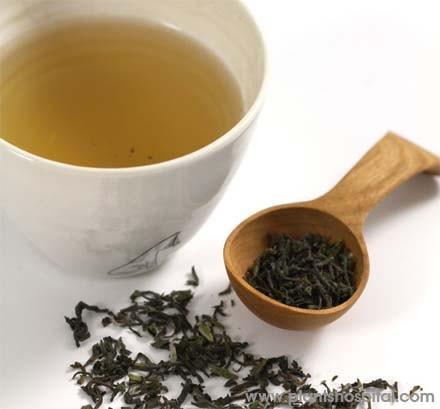Rose tea has long been revered for its allure and medicinal benefits.
It is well-known for assisting in the alleviation of menstrual pain. Additionally, the tea may aid in digestion and may be beneficial in treating anxiety and diabetes. Much of these benefits can be ascribed to the tea’s rich concentration of phytochemicals.
This article highlights the benefits of rose tea. Additionally, it gives a complete list of the nutrients included in rose tea and potential adverse effects. Carry on reading.
In This Article
• What Is Rose Tea?
• The Benefits Of Drinking Rose Tea
• The Phytochemicals In Rose Tea
• How To Make Rose Tea At Home
• How Much Rose Tea to Drink In A Day
• Rose Tea Side Effects
Table of Contents
What Exactly Is Rose Tea?
Rose tea is a tea made from dried rose petals and buds steeped in hot water (Rosa damascena). It is not to be confused with rosehip tea, although rose hips are occasionally included in the tea blend. This tea is made with the petals of different cultivars of the rose species.

According to studies, water extracts of rose flowers have anti-inflammatory and analgesic (pain-relieving) effects linked to the bioactive compounds found in rose flowers.
The following section will delve deeper into these benefits and examine the research that supports them.
The Benefits Of Drinking Rose Tea
One well-known property of rose tea is its antioxidant capacity. Rose tea is believed to benefit menstrual health and to help with anxiety, pain, and inflammatory diseases.
1. Likelihood Of Improving Digestion And Soothing Constipation
In traditional medicine, rose petals have been used to treat digestive problems and were frequently consumed to alleviate stomach problems.
Syrians, Lebanese, Assyrians, and rural Middle Easterners consume rose-flavored beverages. These drinks may contain rosebuds, flowers, or drops of extract.
Zhourat is one such drink. Numerous rose elements are included in this herbal tea that is said to aid in digestion. Their antioxidant capacity increases by including Rosa damascena petals, buds, or oil in these drinks. As a result, drinking rose tea may have a beneficial effect on the digestive system.
Rose decoction is used as a laxative in Iranian medicine and is a traditional rose-based medicinal product used to treat constipation.
Significant laxative effects were observed when rats were given boiled extracts of Rosa damascena. The rose extracts increased the water content and frequency of defecation in feces. They are believed to have accomplished this by stimulating fluid movement in the intestines.
2. Has the Potency to Help with the Prevention of Cancer
Rose petals’ cytotoxic and antioxidant properties have been extensively studied). Additionally, they were discovered to have anti-mutagenic properties.
Rose tea is high in antioxidants, which aid in scavenging free radicals produced during oxidative stress. If left unchecked, this could increase the risk of chronic systemic diseases, such as cancer. By mutating the DNA, the free radicals produced by oxidative stress can cause damage at the cellular level.
3. May greatly aid In The Relieving Of Anxiety And Pain
Consuming rose tea can help in the reduction of stress and anxiety. Tea includes anti-inflammatory compounds that may help in this endeavor. Rosa damascena is also known to possess analgesic properties as a species.
Additionally, rose aromatherapy has been shown to enhance mood and sleep. For example, a study conducted on sleep-deprived rats revealed that an extract of Rose (Rosa rugosa Thunb) could be used to treat sleep deprivation by inhibiting the action of specific receptors. It may be beneficial in alleviating depression, grief, tension, and pain.
4. May help in the Management of Diabetes
In animal studies, it was discovered that drinking an alcohol extract of Rosa damascena had an anti-diabetic effect. It may help in the reduction of blood glucose levels. It is believed that this rose species is a potent inhibitor of the glucose-metabolizing enzyme alpha-glucosidase.
Rose extracts inhibit the absorption of carbohydrates from the small intestine. They aid in reducing postprandial (post-meal) glucose levels and in the management of diabetes. Additionally, rose tea is rich in polyphenols, which help prevent diabetes and cardiovascular risk.
5. Possibly Beneficial for Menstrual Health
Menstrual cramps can be a significant problem for the majority of women. According to studies, nearly half of female adolescents experienced a decline in academic performance, sports participation, and social interaction with peers due to menstrual cramps.
Rose tea and its extracts have alleviated menstrual pain and dysmenorrhea in folk medicine. To investigate this effect, a study with 130 girls was conducted. The test group was given rose tea to drink, and data on intervention were collected after one, three, and six months.
The study’s findings indicated that girls who consumed rose tea experienced less pain, anxiety, and distress during menstruation. Thus, beverages such as rose tea may be a safe and simple way to treat dysmenorrhea and premenstrual syndrome.
6. Likelihood of Antimicrobial Effects
The antimicrobial properties of certain rose cultivars have been investigated. Rose petals’ antimicrobial effects result from flavonoids, tannins, phenolic acids, and carotenoids.
Rose petals exhibited an inhibitory effect against a variety of bacteria strains. Staphylococcus epidermidis, Staphylococcus aureus, Bacillus subtilis, Micrococcus luteus, Escherichia coli, Klebsiella pneumoniae, Pseudomonas aeruginosa, and Proteus mirabilis are among these. Additionally, they slowed the growth of some yeast species.
These benefits are attributed to the phytochemicals found in rose petals. For example, the phytochemical profile of rose tea contains some anti-inflammatory, antioxidant, and analgesic agents.
7. May Help with Weight Loss
Numerous studies have linked a link between increased inflammation and weight gain. Rose tea is well known for its anti-inflammatory properties, and as a result, the tea may be beneficial for weight loss.
Caffeine is found in various beverages consumed daily, including tea and coffee. This rose petal infusion is caffeine-free and contains no tea blends. As a result, rose tea can be an excellent substitute for coffee.
Rose tea may help in the removal of toxins from the body. Though research is scarce, anecdotal evidence suggests that drinking four to five cups of tea daily may aid in weight loss. This can be accomplished through the process of water-induced thermogenesis.
8. Prospect of Hair Growth
Rose petals, particularly white and pink roses, are highly antioxidant and anti-allergic. In addition, a study conducted in South Korea discovered that white rose petals inhibited lipid and protein oxidation in hair cells.
Rose phytochemicals can inhibit sebum secretion. Sebum levels that are too low can help alleviate itching and oily scalp problems. However, when added to hair products such as shampoos, rose extracts (from various species) can also help in reducing scalp inflammation.
Rose petals contain ellagitannin and epigallocatechin gallate, which can help prevent hair loss and conditions such as seborrheic dermatitis. As a result, drinking rose tea or applying rose extracts topically may be beneficial in treating scalp inflammation and hair loss.
The Phytochemicals In Rose Tea
Terpenes, glycosides, flavonoids, anthocyanins, carboxylic acids, and various other simple and complex organic compounds are found in roses. Its flowers contain myrcene, kaempferol, quercetin, tannins, and fatty acids. The majority of flavonoids are found in essential oil.
Biochemical analysis revealed that the total phenolic content of the majority of rose tea species was comparable to or greater than that of green tea. Gallic acid was discovered in teas made from various rose cultivars. Gallic acid in its free form is believed to be the primary component responsible for this beverage’s high antioxidant capacity.
Another group of phytochemicals responsible for the color of rose petals is anthocyanins. Additionally, they help in the elimination of free radicals from the body. These pigments contribute to rose tea’s medicinal properties with phenolic acids and tannins.
As a result, it has been established that this tea contains more antioxidants than green or black tea, but it is mildly sweet or flavorless due to its polysaccharides.
If you’re interested in learning how to make rose tea, you’ve come to the right place. The following is a straightforward recipe for rose tea brewing. Rose tea can be brewed with fresh or dried rose petals.
How To Make Rose Tea At Home
Method 1: Using Fresh Rose Petals
- Get fresh rose petals that are pesticide-free and organic.
- Gently wash 1-2 cups of the petals in running water.
- In a saucepan/boiling pot, combine the petals and 3 cups of drinking water.
- Bring to a boil the contents for roughly 5-6 minutes
- Transfer the contents to serving cups using a strainer.
- Sweeten with the sweetener of your choice (optional).
- Serve hot.
How To Dry Roses At Home: A Do-It-Yourself Guide
For drying, you’ll need petals with a sweet flavor. When dried, the petals of most rose cultivars have a bitter taste. Consult your local horticulture specialist or visit nurseries for additional help.
All that is required is the following:
- Select fresh, dew-free rose petals.
- Fill them halfway in a net/mesh bag. Using an elastic band, secure it.
- Hang it in a warm, dry, and dark location (like potpourri) to dry the bag.
- Depending on the humidity, drying the petals may take several days.
- Once they have dried completely, store them in an airtight container for future use.
- Avoid overfilling the net bag, resulting in the suffocation and rot of the central petals. These petals are unfit for use. As a result, when packing, leave enough space in the bag.
2nd Method: Using Dried Rose Petals
- Bring 1 cup dried rose petals and 2-3 cups water to a boil in a small saucepan.
- Bring to a boil the contents for approximately 5-6 minutes.
- Transfer the contents to serving cups using a strainer.
- While the rose petals are brewing, you can add green tea powder. If the petals you chose became bitter after drying, green tea leaves might come to the rescue.
If the rose flavor is too strong, you can make scented teas with dried or fresh petals.
Scented teas can be garnished with just a few petals. Rose petals are complimentary to oolong, green, and black teas.
How Much Rose Tea to Drink In A Day
The key is to consume the herbal infusion in moderation. Though no quantitative studies have been conducted to determine the safe upper limit for rose tea consumption, it is recommended that no more than five cups of this brew be consumed. Excessive use may result in certain side effects.
Rose Tea Side Effects
According to anecdotal evidence, excessive excess of rose tea may result in nausea or diarrhea. However, rose extracts are generally considered to be harmless. Although the FDA considers them safe, if you are allergic to certain foods, it is best to consult your physician before consuming rose tea.
Summary
Rose tea is a potent and intoxicating beverage. Rose petals contain an abundance of antioxidants, including anthocyanins, anti-inflammatory phytochemicals, and antimicrobial compounds.
By incorporating them into your brew, you can increase its medicinal value. For example, you can substitute rose tea for your regular beverage and reap its benefits daily.
Read Also:
- 6 Nutrition And Health Benefits Of Poppy Seeds- Uses And Side Effects 2025
- 13 Proven Health Benefits of Blueberry Tea (2025)
- Quartz Healing Stone Health Benefits (Guide 2021)
- Top 8 Wonderful Health Benefits Of Mahlep Tree (Mahaleb Cherry)
FAQs On Rose Tea Benefits
Is rose tea beneficial for the skin?
Rose tea is high in antioxidants and vitamin C and may help maintain healthy skin. While there is no direct evidence to support this, roses have traditionally and commercially been used in the cosmetic and beauty industries.
Is rose tea effective at aiding with falling asleep?
Rose tea induces sleep due to its aroma’s relaxing effect on the body. Additionally, it may alleviate stress.
What is the best time for rose tea?
Rose tea is a beverage that can be enjoyed at any time. It is particularly beneficial if consumed before sleeping. It contains no caffeine and may be helpful for sleep promotion.
Is it reasonable for me to drink rose tea every day?
Yes, you may drink tea daily as it provides numerous health benefits.
Is it safe to drink rose tea during pregnancy?
Rose extracts are safe by the FDA. As a result, it may be considered safe to take during pregnancy, but please consult a physician to be on the safe side.








